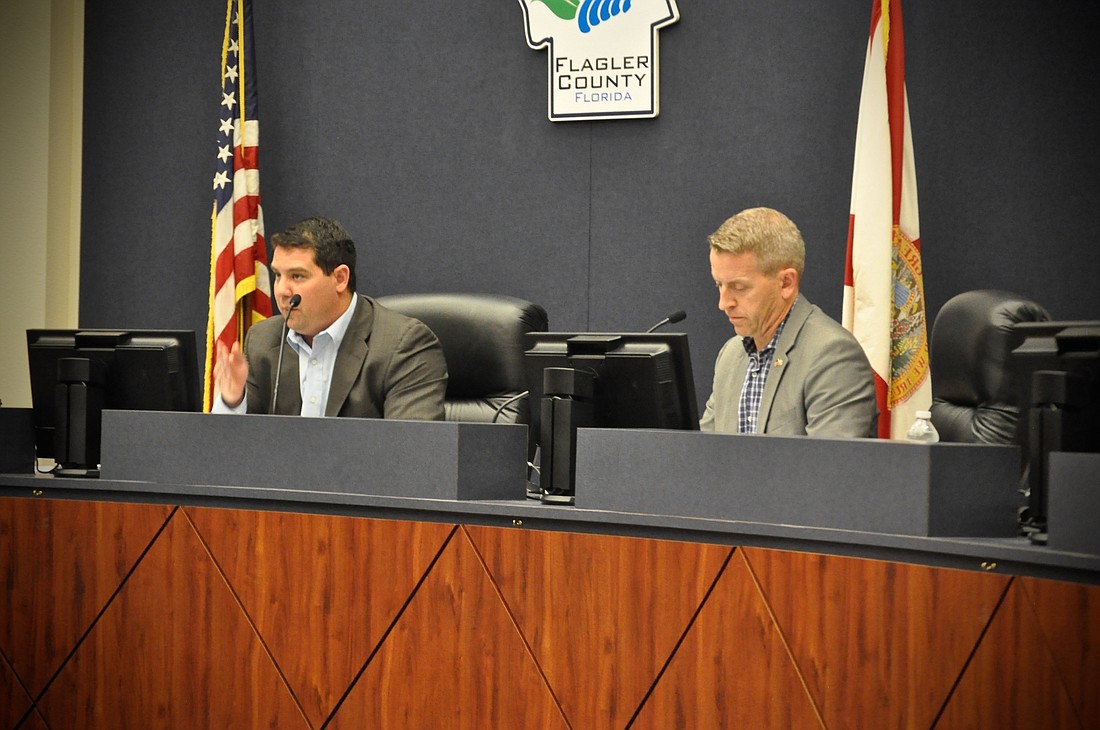- April 18, 2024
-
-
Loading

Loading

It’s a fact repeatedly bemoaned by Palm Coast city leaders: The city cannot run its own ambulance service, but finds itself using fire trucks — which are costlier than ambulances to run and maintain — on emergency medical services calls alongside county ambulances, duplicating the county service at cost to city residents.
To change that, Palm Coast would need to get a “certificate of public convenience and necessity” from the county to run its own ambulance service, and that’s something Flagler County has been unwilling to grant.
“We are seeing, across the state, a lot of municipalities that want to provide what they think could be better and cheaper services for their constituency, and counties are just flat denying them.”
Travis Hutson, state senator, District 6
Now, state legislation proposed by Sen. Travis Hutson may change the rules, making it harder for counties within the state to deny cities the paperwork that would let cities run their own EMS services.
“We are seeing, across the state, a lot of municipalities that want to provide what they think could be better and cheaper services for their constituency, and counties are just flat denying them,” Hutson said at a legislative delegation meeting at the county Government Services Building Nov. 13. “And it’s not this county per se, but it’s across the state. So what this bill would do would require counties to come up with a regulatory standard ... and if a local municipality can do better than that standard by providing cheaper services and better service, and faster service from a healthcare basis, that they would be able to do so if they can prove it in front of a judge. So it kind of gives the county a metric of putting a baseline in place, and they can certainly make it as stringent as they want or however they want to with that ordinance, and then if somebody can do better than them and provide a better service, then they certainly have that option there to try to make it cheaper for the taxpayer.”
Flagler County Commissioner Frank Meeker said at the meeting that he didn’t see the need for the legislation.
“My current belief is that this is going to force municipal and county governments to compete for funding between each other and reduce quality of service, and based on past experiences, we’ve seen increased cost to residents,” he said.
The legislation, which lets cities appeal the county’s denial of a certificate to a judge, “seems to be encouraging local governments to do some empire building while at the same time encouraging local governments to start suing each other on who’s going to be doing what,” Meeker continued. “I think the taxpayers lose on that one, all the way across.”
And, he said, EMS services are not money-makers for municipalities. “I can’t find a local government that is providing this service that is not losing money on providing this service,” he said. “It’s very tough to make money on something like this.”
He suggested Hutson and Renner read a statement on the issue by the Florida Association of Counties, which opposes the bill.
The FAC statement says the current rules were enacted “ to prevent multiple ambulances racing to an emergency scene and fighting over who will transport the victim.” If municipalities compete with counties to provide services, according to the FAC statement,
“Emergency calls may be routed to different 9-1-1 centers and rescue vehicles may be dispatched from the wrong jurisdiction, delaying care. In a countywide coordinated system, everyone gets equal, high quality care while keeping costs down.”
Palm Coast Mayor Jon Netts noted that the legislation wouldn’t automatically create a municipal EMS system.
“What happens now is we have a unilateral system where the county has absolute authority to affirm or deny,” he said. “What we’d like to do is open the opportunity to open the conversation. Right now, the fire department in Palm Coast represents 48% of our general fund budget, and 94% of our fire dispatch is for EMS calls. A tremendous amount of money is going out of the taxpayers’ pockets with no reimbursement whatsoever. This bill you’ve proposed — we think that would at least open the door to a meaningful conversation.”